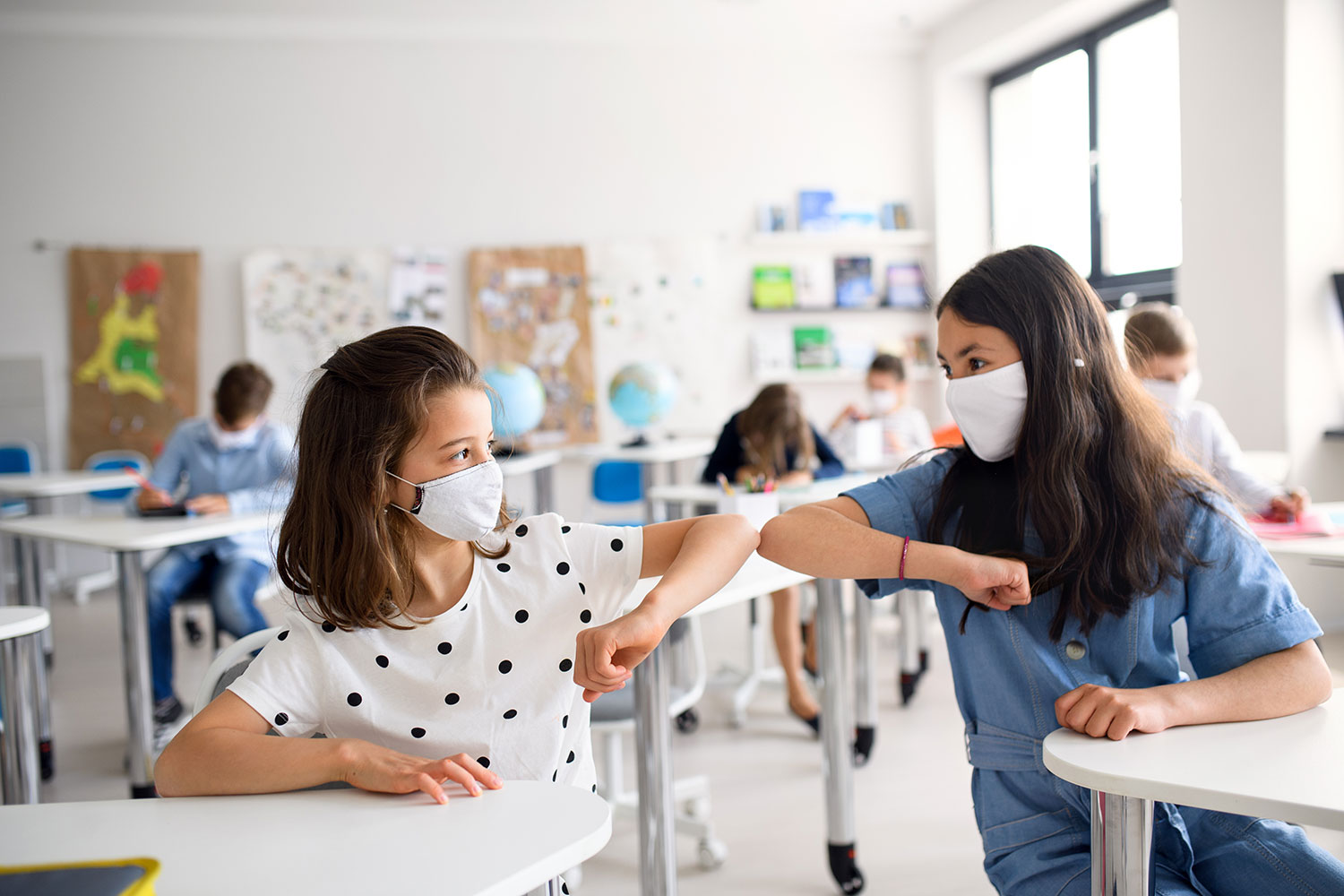After almost a year of virtual learning, children are starting their return to in-person school. There are many ways children may respond to this transition, and it can help connect with them to understand how they are feeling leading up to their first day back and as they continue to move into this new stage of “normal.” Children are astute at picking up their caregiver’s emotions, so chances are if you are excited or anxious, they may be feeling similarly. Some children will be more forthright with sharing their worries, and others may need you to initiate the conversation. Here are some ideas for starting and navigating the conversation.

Make space for communication
Find a time to talk to your children without distractions. It could be a family discussion at the dinner table or going for a one-on-one walk with each child. Â We often try to reassure children about what will make school fun or why they should feel excited. However, this can lead children to mask their concerns as they may not want to upset you with their worries. It tends to be more impactful if your children are the ones to articulate the positives of returning to in-person learning.
Here are examples of prompts:
- What have you missed about being in school?
- What might you remember about virtual learning?
- What parts of the school will be the same as before the pandemic, and what may be different?
These questions can pave the way for children to ask questions express their feelings.
Share information, encourage questions, follow their lead
By sharing with children how schools are taking steps to keep them safe, they may feel more confident going back. Even if they do not have questions, you can share with them what will look different. For example, students and staff will be wearing masks. There may be plastic barriers between the teacher and students. You may have classes outside if the weather permits. After you speak, you can encourage them to write out a list of any lingering questions: What happens if they see classmates not wearing their masks appropriately? What do you do if you cannot understand your teacher if she is wearing a mask? You can roleplay scenarios if your child brings up specific questions. If they seem particularly stressed about the return, bring up instances where they have been brave or advocated for themselves with teachers or caregivers.
Some children may have worries about whether they can get their loved ones sick. Follow your child’s lead; talking about the precautions opens the door for them to articulate what may be beneath the surface. There is also a chance that there are no big feelings about returning. You know your children best, so show that you are available and let them guide you.
Validate and name their feelings
Whatever your children may be feeling, communicate that it is OK and it is normal. If children have difficulty expressing an idea and can see they are struggling, wonder aloud what it could be and try to name it. For example, “I wonder if you are worried about going back to school, am I correct?” Questions such as these help children organize their emotions and feel understood, supported, and more regulated. These are uncharted waters for children and parents alike. Be patient and kind with yourselves as you navigate this alongside your kiddos.